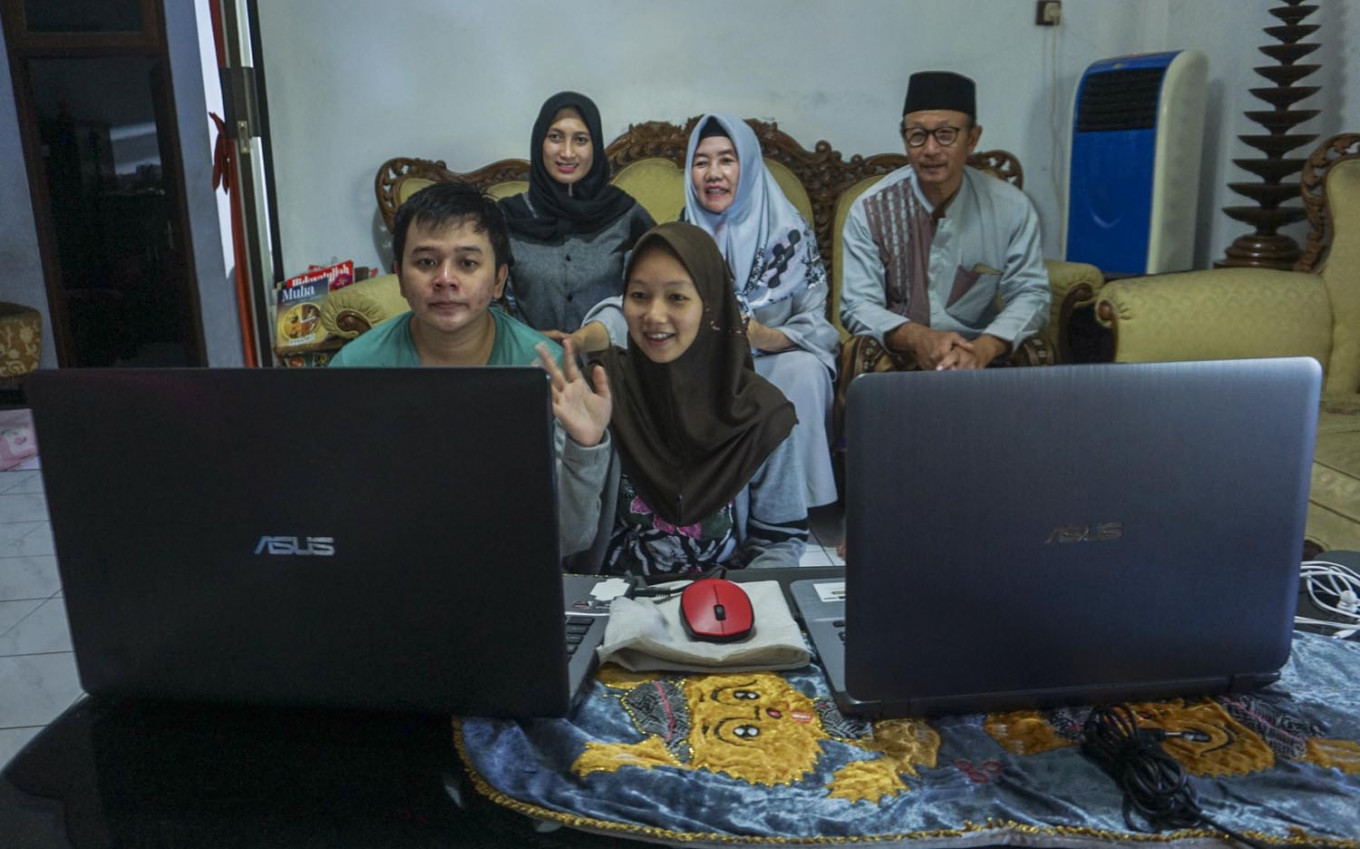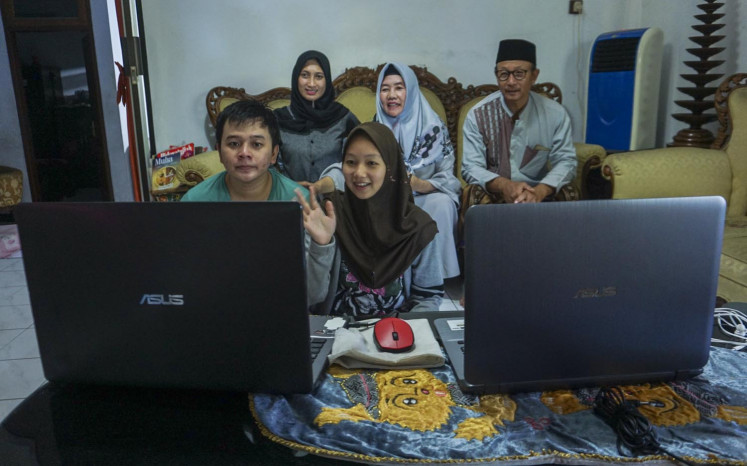Regions outside Java step up digital game
Bali, Riau Islands have become more attractive for tech giants
Change Size

T
he touristy Bali and Riau Islands have become more attractive locations for tech companies, challenging the dominance of Java, as Indonesia’s provinces compete to capture a bigger slice of Southeast Asia’s largest digital economy.
The two provinces moved up three ranks within the list of top ten tech-friendly Indonesian locations in the 2021 Digital Competitiveness Index (DCI), which is an annual study funded by venture capital firm East Ventures and conducted by Katadata Insight Center.
The study attributed the rise of non-Java provinces to infrastructure development, such as wider coverage of mobile communication signals, more houses with landlines and electricity as well as rising spending on internet data and phone credit.
“The pandemic definitely has an impact on the DCI score, because people are pushed to go online, such as by using e-commerce and video conferencing apps,” Willson Cuaca, cofounder and managing partner at East Ventures, said during the report’s presentation on Monday.
Researchers measure each province's digital input, such as the availability of tech-savvy human resources and internet access, its digital output, such as the number of workers in the digital sectors, as well as digital support, like infrastructure and regulations.
The 2021 DCI shows a growing equalization in digital competitiveness among Indonesia’s 34 provinces as the COVID-19 pandemic propelled digital infrastructure development across the archipelago.
The median score for digital competitiveness, which lies on a 0-100 scale, improved from 27.9 last year to 32 this year, indicating shrinking disparity between the highest-scoring and lowest-scoring provinces.
According to the report, the ten most digitally competitive provinces remain the same as last year, with Jakarta, West Java and East Java being the top three.
Jakarta, West Java and East Java are Indonesia’s three biggest provincial economies and collectively contribute almost half of the country’s gross domestic product (GDP).
Bali moved up three places to fourth position on the DCI, the highest rank among non-Java provinces. The study said that, thorough 3G and 4G coverage on the island had boosted the growth of technology-based entrepreneurship. Bali’s entrepreneurship and productivity score more than doubled to 39 from 14 in 2020.
Bali’s digital competitiveness also benefited from an influx of tech-savvy employees from big Indonesian cities and foreign countries. Many of such employees moved to the resort island last year as their offices introduced remote working systems.
In a Jan. 29 statement, Tourism and Creative Economy Minister Sandiaga Salahuddin Uno went as far as to publicly call on businesspeople and professionals to work from Bali.
“First, because we can work efficiently while enjoying Bali’s natural beauty, and second, we can also help Bali’s tourism and creative industry,” he said.
Read also: Come work from Bali, minister says, as government eyes tourism recovery despite pandemic
Meanwhile, the province of Riau Islands saw its entrepreneurship and productivity score increase from 19 to 35. The DCI report suggests that Nongsa Digital Park, a town built to groom Indonesian digital talents for outsourcing mainly to Singaporean businesses, contributed to Riau’s digital competitiveness.
“Riau got a spillover effect from the talent concentration in the Nongsa Digital Park area. Meanwhile, Bali has become a destination for digital nomads. This is why their DCI index went up this year,” Willson added.

Singapore Trade and Industry Minister Chan Chun Sing, in a March 9 statement, mentioned Nongsa Digital Park as one of three Indonesian economic zones that were of strong interest for Singaporean investors.
“This expansion [of the Nongsa Digital Park] will certainly enable more tech companies in Singapore and Indonesia to find more synergy and capture the growing opportunities in the digital space,” he said.
Read also: Citramas, Sinar Mas team up for digital venture into Batam’s $14b economy
Bengkulu province rose by the greatest degree, rising 11 ranks from 30th place last year to 19th this year, but falling short of the top ten. The province’s rise was attributed to wider internet coverage and financial inclusion following the provincial administration’s Digital Village (DEDI) program.
The government has been ramping up spending on digital infrastructure development in the country, such as with the development of fiber-optic networks.
President Joko “Jokowi” Widodo has also stated that his administration will allocate Rp 30.5 trillion (US$2.06 billion) in the 2021 state budget for information and communication technology (ICT) development to improve connectivity and digital inclusion.
The government’s effort to propel digital development also reflect in last year's DCI report, as most of the provinces’ digital infrastructure scored high. However, digital utilization in entrepreneurship still scored low on the national average, even though Indonesia is the largest and fastest-growing internet economy in the region.
Read also: Digital adoption outside Java lags despite adequate infrastructure: Report
“Technology utilization for the digital economy is not optimal yet, but that is okay. What is important is that we know the path is clear for us to accelerate technology uses,” Willson said.
He went on to say that better education for local talent and opening access to investors were important aspects for provinces to increase their digital competitiveness. As tech-savvy human capital became available, they could adopt technology better, and more use cases could attract investors.
“Next year’s DCI scores will definitely be better. People who have adopted technology will learn and measure their impact this year to be better next year,” he concluded.









